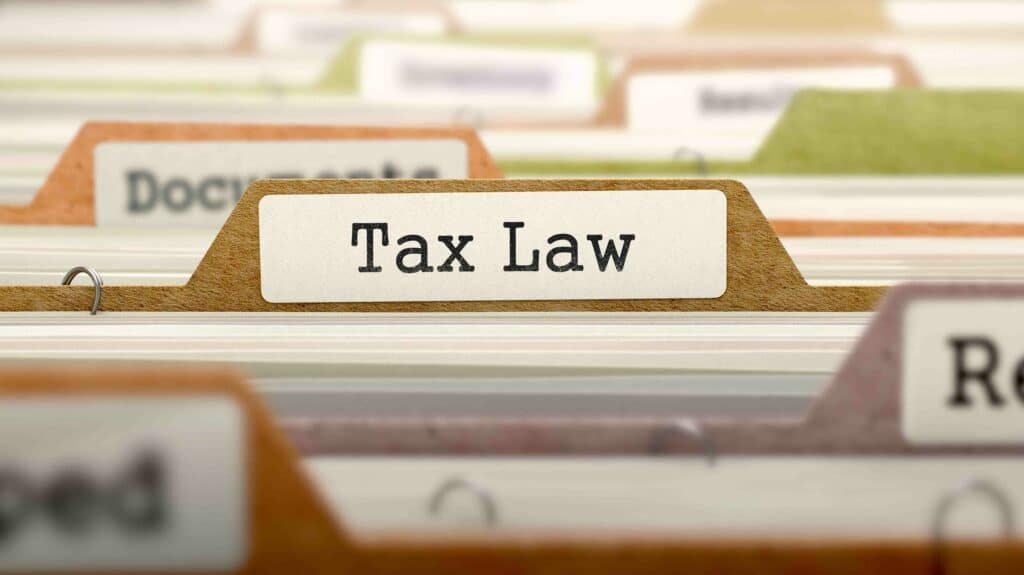We are happy to share with you an update on the Covid-19 measures that have been approved in Belgium. Our guest auhor Wout De Cock is a PhD candidate at the Vrije Universiteit Brussel and part-time teaching assistant at the Katholieke Universiteit Leuven.* Introduction In issue 1/2020 of the European State Aid Law Quarterly, we concluded that the European Commission […]
State Aid Law
Blog
State Aid Uncovered Blog
In Lexxion’s State Aid Uncovered blog, Prof. Phedon Nicolaides publishes weekly critical analyses of recent State aid judgments and decisions. Each post presents the key points of a court judgment or EU Commission decision, places it in the context of similar case law or practice, assesses the underlying reasoning and highlights any inconsistencies or contradictions.
Guest contributions from other State aid experts will also be published on the blog at irregular intervals to complement the content of the blog posts.
- Article 107(1) TFEU ×
14. May 2020 |
Guest State Aid Blog
by Wout De Cock
23. January 2020 |
State Aid Uncovered
by Phedon Nicolaides
Support for individual borrowers can be indirect State aid to banks. Introduction The fact that a public measure has social objectives and aims to help poor households or disadvantaged persons instead of undertakings does not necessarily remove it from the reach of State aid rules. During the past decade, in response to the economic crisis, a number of Member […]
17. December 2019 |
State Aid Uncovered
by Phedon Nicolaides
A tax that is levied at one level of government and does not apply to products and activities at a different level of government need not be selective. Introduction A tax exemption normally confers a selective advantage, unless it is justified by the logic of the tax. Counterintuitively, a tax itself can be selectively advantageous if its scope is too […]
4. December 2018 |
State Aid Uncovered
by Phedon Nicolaides
Introduction In its ruling of 6 November 2018 in cases C‑622/16 P to C‑624/16 P, Scuola Elementare Maria Montessori v European Commission, the Court of Justice made it harder for Member States to escape from their recovery obligations.[1] Montessori appealed against the judgment of the General Court in case T‑220/13, Scuola Elementare Maria Montessori v European Commission. That judgment was reviewed here on […]
9. November 2018 |
State Aid Uncovered
by Phedon Nicolaides
Compensation for the extra costs of a public service obligation may include a reasonable profit that reflects the risk borne by the provider of the public service. Introduction The calculation of the amount of compensation for the extra costs of public service obligations can be difficult and tricky. In the absence of such calculation, aid to providers of […]
9. October 2018 |
State Aid Uncovered
by Phedon Nicolaides
A private investor assesses the prospects of future profitability before it invests. The burden of proof lies with the Member State that claims it has acted as a private investor. Introduction The market economy investor principle is based on a simple premise: before you commit your money you need to check how much you are likely to get back. […]
7. August 2018 |
State Aid Uncovered
by Phedon Nicolaides
Failure to comply with just a single provision of an exemption regulation results in the non-applicability of the whole regulation and makes any implemented aid measure automatically illegal. The compatibility of aid measures adopted in the past but continuing having effects are assessed not on the basis of old rules but on the basis of the rules which are applicable […]
27. July 2018 |
State Aid Uncovered
by Phedon Nicolaides
A selective measure should be determined on the basis of its effects, not on the basis of the legally defined regulatory techniques. Introduction A tax measure is selective in the meaning of Article 107(1) TFEU when it basically deviates from the normal tax system. In the case of a tax reduction or a tax exemption the normal system is […]
17. July 2018 |
State Aid Uncovered
by Phedon Nicolaides
A selective tax reduction does not constitute State aid if it does not confer an advantage that is proportionately larger than the magnitude of the tax reduction. A complete exemption of insignificant amounts of the taxable volume can be justified on the grounds of reducing administrative burden. Introduction Member States enjoy wide discretion to levy taxes on […]
25. June 2018 |
State Aid Uncovered
by Phedon Nicolaides
Damage from natural disasters can be remedied in the short-term through direct compensation or in the longer-term through investment subsidies to support new productive capacity. Introduction This article reviews a rather straightforward case which, however, is also quite unusual. It concerns a measure to remedy the effect of recent earthquakes in Italy. What makes it unusual is that […]
- Article 107(1) TFEU ×
14. May 2020 |
Guest State Aid Blog
by Wout De Cock
We are happy to share with you an update on the Covid-19 measures that have been approved in Belgium. Our guest auhor Wout De Cock is a PhD candidate at the Vrije Universiteit Brussel and part-time teaching assistant at the Katholieke Universiteit Leuven.* Introduction In issue 1/2020 of the European State Aid Law Quarterly, we concluded that the European Commission […]
23. January 2020 |
State Aid Uncovered
by Phedon Nicolaides
Support for individual borrowers can be indirect State aid to banks. Introduction The fact that a public measure has social objectives and aims to help poor households or disadvantaged persons instead of undertakings does not necessarily remove it from the reach of State aid rules. During the past decade, in response to the economic crisis, a number of Member […]
17. December 2019 |
State Aid Uncovered
by Phedon Nicolaides
A tax that is levied at one level of government and does not apply to products and activities at a different level of government need not be selective. Introduction A tax exemption normally confers a selective advantage, unless it is justified by the logic of the tax. Counterintuitively, a tax itself can be selectively advantageous if its scope is too […]
4. December 2018 |
State Aid Uncovered
by Phedon Nicolaides
Introduction In its ruling of 6 November 2018 in cases C‑622/16 P to C‑624/16 P, Scuola Elementare Maria Montessori v European Commission, the Court of Justice made it harder for Member States to escape from their recovery obligations.[1] Montessori appealed against the judgment of the General Court in case T‑220/13, Scuola Elementare Maria Montessori v European Commission. That judgment was reviewed here on […]
9. November 2018 |
State Aid Uncovered
by Phedon Nicolaides
Compensation for the extra costs of a public service obligation may include a reasonable profit that reflects the risk borne by the provider of the public service. Introduction The calculation of the amount of compensation for the extra costs of public service obligations can be difficult and tricky. In the absence of such calculation, aid to providers of […]
9. October 2018 |
State Aid Uncovered
by Phedon Nicolaides
A private investor assesses the prospects of future profitability before it invests. The burden of proof lies with the Member State that claims it has acted as a private investor. Introduction The market economy investor principle is based on a simple premise: before you commit your money you need to check how much you are likely to get back. […]
7. August 2018 |
State Aid Uncovered
by Phedon Nicolaides
Failure to comply with just a single provision of an exemption regulation results in the non-applicability of the whole regulation and makes any implemented aid measure automatically illegal. The compatibility of aid measures adopted in the past but continuing having effects are assessed not on the basis of old rules but on the basis of the rules which are applicable […]
27. July 2018 |
State Aid Uncovered
by Phedon Nicolaides
A selective measure should be determined on the basis of its effects, not on the basis of the legally defined regulatory techniques. Introduction A tax measure is selective in the meaning of Article 107(1) TFEU when it basically deviates from the normal tax system. In the case of a tax reduction or a tax exemption the normal system is […]
17. July 2018 |
State Aid Uncovered
by Phedon Nicolaides
A selective tax reduction does not constitute State aid if it does not confer an advantage that is proportionately larger than the magnitude of the tax reduction. A complete exemption of insignificant amounts of the taxable volume can be justified on the grounds of reducing administrative burden. Introduction Member States enjoy wide discretion to levy taxes on […]
25. June 2018 |
State Aid Uncovered
by Phedon Nicolaides
Damage from natural disasters can be remedied in the short-term through direct compensation or in the longer-term through investment subsidies to support new productive capacity. Introduction This article reviews a rather straightforward case which, however, is also quite unusual. It concerns a measure to remedy the effect of recent earthquakes in Italy. What makes it unusual is that […]
- Article 107(1) TFEU ×
14. May 2020 |
Guest State Aid Blog
by Wout De Cock
We are happy to share with you an update on the Covid-19 measures that have been approved in Belgium. Our guest auhor Wout De Cock is a PhD candidate at the Vrije Universiteit Brussel and part-time teaching assistant at the Katholieke Universiteit Leuven.* Introduction In issue 1/2020 of the European State Aid Law Quarterly, we concluded that the European Commission […]
23. January 2020 |
State Aid Uncovered
by Phedon Nicolaides
Support for individual borrowers can be indirect State aid to banks. Introduction The fact that a public measure has social objectives and aims to help poor households or disadvantaged persons instead of undertakings does not necessarily remove it from the reach of State aid rules. During the past decade, in response to the economic crisis, a number of Member […]
17. December 2019 |
State Aid Uncovered
by Phedon Nicolaides
A tax that is levied at one level of government and does not apply to products and activities at a different level of government need not be selective. Introduction A tax exemption normally confers a selective advantage, unless it is justified by the logic of the tax. Counterintuitively, a tax itself can be selectively advantageous if its scope is too […]
4. December 2018 |
State Aid Uncovered
by Phedon Nicolaides
Introduction In its ruling of 6 November 2018 in cases C‑622/16 P to C‑624/16 P, Scuola Elementare Maria Montessori v European Commission, the Court of Justice made it harder for Member States to escape from their recovery obligations.[1] Montessori appealed against the judgment of the General Court in case T‑220/13, Scuola Elementare Maria Montessori v European Commission. That judgment was reviewed here on […]
9. November 2018 |
State Aid Uncovered
by Phedon Nicolaides
Compensation for the extra costs of a public service obligation may include a reasonable profit that reflects the risk borne by the provider of the public service. Introduction The calculation of the amount of compensation for the extra costs of public service obligations can be difficult and tricky. In the absence of such calculation, aid to providers of […]
9. October 2018 |
State Aid Uncovered
by Phedon Nicolaides
A private investor assesses the prospects of future profitability before it invests. The burden of proof lies with the Member State that claims it has acted as a private investor. Introduction The market economy investor principle is based on a simple premise: before you commit your money you need to check how much you are likely to get back. […]
7. August 2018 |
State Aid Uncovered
by Phedon Nicolaides
Failure to comply with just a single provision of an exemption regulation results in the non-applicability of the whole regulation and makes any implemented aid measure automatically illegal. The compatibility of aid measures adopted in the past but continuing having effects are assessed not on the basis of old rules but on the basis of the rules which are applicable […]
27. July 2018 |
State Aid Uncovered
by Phedon Nicolaides
A selective measure should be determined on the basis of its effects, not on the basis of the legally defined regulatory techniques. Introduction A tax measure is selective in the meaning of Article 107(1) TFEU when it basically deviates from the normal tax system. In the case of a tax reduction or a tax exemption the normal system is […]
17. July 2018 |
State Aid Uncovered
by Phedon Nicolaides
A selective tax reduction does not constitute State aid if it does not confer an advantage that is proportionately larger than the magnitude of the tax reduction. A complete exemption of insignificant amounts of the taxable volume can be justified on the grounds of reducing administrative burden. Introduction Member States enjoy wide discretion to levy taxes on […]
25. June 2018 |
State Aid Uncovered
by Phedon Nicolaides
Damage from natural disasters can be remedied in the short-term through direct compensation or in the longer-term through investment subsidies to support new productive capacity. Introduction This article reviews a rather straightforward case which, however, is also quite unusual. It concerns a measure to remedy the effect of recent earthquakes in Italy. What makes it unusual is that […]













